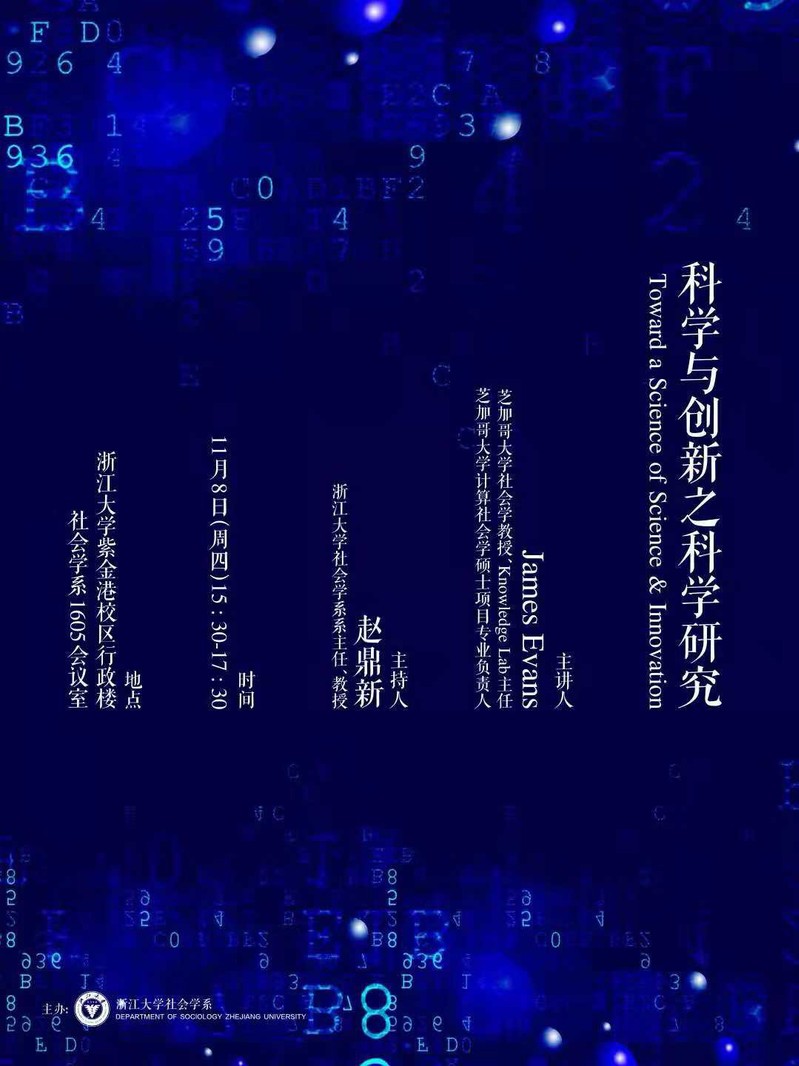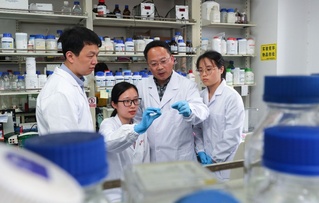
主讲人:James Evans
芝加哥大学社会学教授
Knowledge Lab主任
芝加哥大学计算社会学硕士项目专业负责人
主持人:赵鼎新 浙江大学社会学系主任、教授
时 间:2018年11月8日(周四)15:30-17:30
地 点:浙江大学紫金港校区行政楼社会学系1605会议室
主讲人介绍
James Evans is Professor of Sociology, Director of Knowledge Lab, and Faculty Director of Computational Social Science at the University of Chicago. His research uses large-scale data, machine learning and generative models to understand how collectives think and what they know. This involves inquiry into the emergence of ideas, shared patterns of reasoning, and processes of attention, communication, agreement, and certainty. Thinking and knowing collectives like science, Wikipedia or the Web involve complex networks of diverse human and machine intelligences, collaborating and competing to achieve overlapping aims. Evans' work connects the interaction of these agents with the knowledge they produce and its value for themselves and the system. Evans designs observatories for understanding that fuse data from text, images and other sensors with results from interactive crowd sourcing and online experiments. Much of Evans' work has investigated modern science and technology to identify collective biases, generate new leads taking these into account, and imagine alternative discovery regimes. He has identified R&D institutions that generate more and less novelty, precision, density and robustness. Evans also explores thinking and knowing in other domains ranging from political ideology to popular culture.
内容介绍
“Here I outline the large-scale data and emerging computational methods that make the empirical study of knowledge, science and innovation at scale possible. I provide an overview of my most recent work at Knowledge Lab tracing the social and cultural organization of science and its consequences for what we know and how we can know better. This includes empirical demonstrations of how decentralized and disconnected networks increase the truth value of collective certainty in biomedicine, how small teams enlarge the search space of science and technology, but how flocking correlates investigations and limits the size of future understanding. It also includes new theories of knowledge and novelty that allow us to measure them in new ways and at scale. I also explore how the complex system of science, technology and society generates productive social disconnection to accelerate advance through maintaining crossable boundaries between disciplines, ideologies, and the ways in which recombination is valued. For example, we model scientific discovery and technological invention as the complex combination of contents including problems, methods and physical entities, which bridge contexts such as journals, subfields and conferences from which scientists and inventors drawn them and can predict more than 95% of new patents and articles, but the unlikelihood or surprise associated with unlikely combinations of contents across contexts predicts nearly 50% of the likelihood of revolutionary success, measured by outsized citations and major awards. I discuss the implication of these findings for science and society, and chart a path for how we can collectively think better. ”




